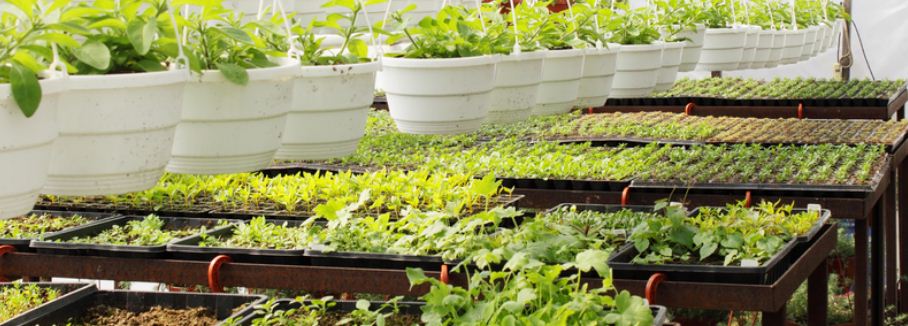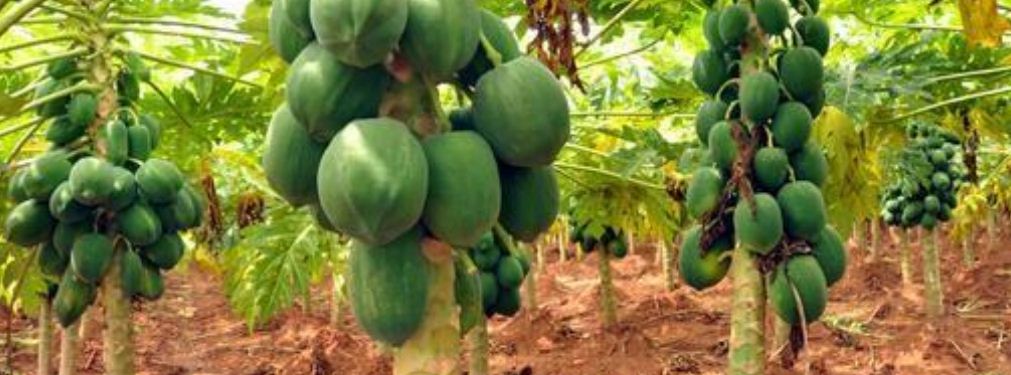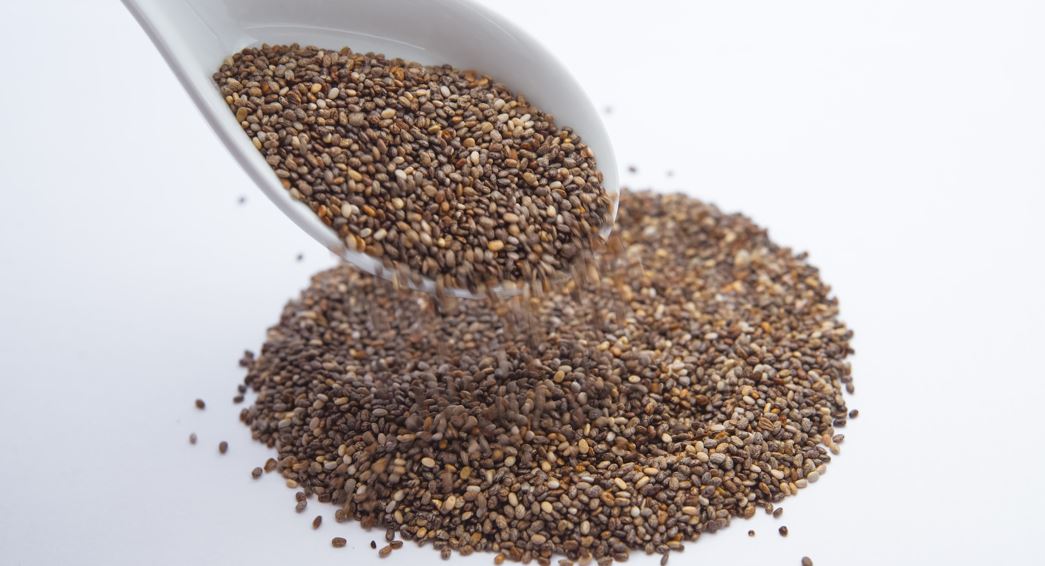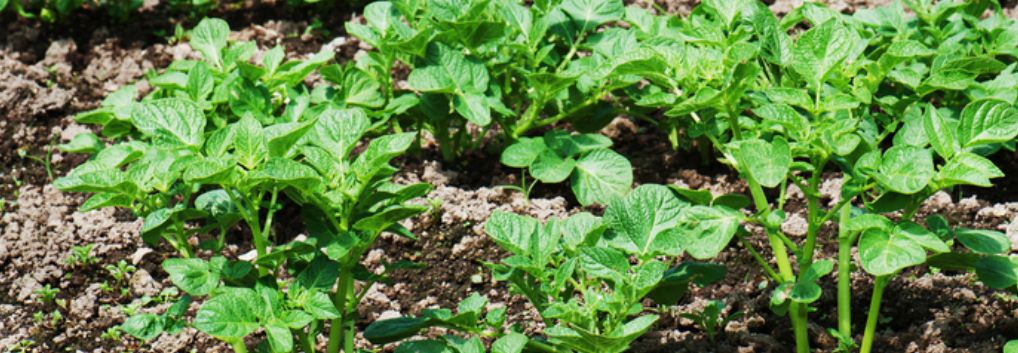Tips on Starting a Herb Farm Business

It isn’t possible to even think of a business you don’t know what it is all about. For this reason, this article will, first of all, explain the meaning of herbs and herb farming before proceeding to 7 tips on how you can start it.
Herb is any plant that has leaves, flowers or seeds (fresh or dried) with aromatic properties serving a medicinal purpose and culinary uses to flavour or garnishes food.
What is herb farming? Herb farming is simply the business that involves growing of such plants mentioned above for market sale.
Do you know that you can make lots of money by starting a herb farm business?
Herb farming is a profitable business that can generate huge income when handled carefully. As a herb farmer, you will become a supplier to the culinary industry, pharmacists and others that use herbs for production.
What some people don’t know is that the word “herbs” does not only signify plants used for medicinal purposes but includes other plants as well as leaves used for flavouring or perfume.
Herbs are in high demand and increase day by day because of its medicinal and health benefits from alternative health practitioners to those in aromatherapy and more.
Are you interested in starting your own herb farm business, the below tips will be your guide:
1. Consider All the Things Herb Farming Requires
There are things to consider before starting this business. They include the things you necessarily need to start up with and then what to do to keep the business moving.
Such things are: what kinds of herbs are best in your location? What kinds of herbs are popular that people can easily go for?
What are the purposes of those herbs and who should be your target market? Is there any new herb on the market that might complement your business? etc., you have to look into these things properly so that you can effectively venture into the right herb business.
Having mulled over all these things above, you have to find the answers and solutions to each of them.
2. Land And Soil Type
In the farming of herbs, you may not necessarily need to buy or rent land if you have enough space in your backyard where you can conveniently grow such plants.
Herbs can be grown either indoor or outdoor. So getting a site or land per say might not be a factor to consider once you have a space in your surrounding but the most important is the nature of soil upon which the herbs are to be grown.
You have to look into the soil type to ensure that it is essential for the effective growth of the herbs so that they can easily utilize the nutrients in the soil and grow well.
Although most herbal trees thrive in distinctive garden soil once the soil is characterised by good drainage ability with a light texture.
Some herbs are characterised by woody plants requires sharply drained soil such as sandy to do well.
In addition to this, herbs need to be planted at a place where they will be getting at least 6 hours of sun per day.
3. Know the Varieties of Herbs
There are different varieties of herbs available for cultivation. It is important to get conversant with most of the species if not all to know the suited climate for each when to plant them and their uses.
Listed below are the list of herb varieties (types) and brief information about each of them.
Thyme: This is the commonest herb with a hardy plant grown perennially. It can be grown indoors but requires a sunny location and dry soil to thrive well.
Thyme is recognized as the most used culinary herb used to season meats and vegetables.
Rosemary is perennial and among the popular variety of herb that grows well in full sun and dry, well-drained soil.
Rosemary herbs grow well indoors and are frequently used on red meat, lamb, shellfish and other meats.
Lavender is another popular variety and a perennial hardy plant that grows well in gardens with dry soil and full sunlight. It has fragrant leaves which are often used in potpourri and sachets.
Catnip is another type of perennial herb that prefers full sunlight, well-drained soil and adequate moisture. It is regarded as a hardy plant which should be cut back in autumn. Often used for tea.
Bay is a perennial herb variety that requires light shade and well-drained soil. Bay herbs grow well in pots and are known for their leaves which are used for different purposes.
Angelica: It is a biennial herb mainly used as a condiment or confection requires light shade and moist soil. Roots and leaves are harvested in late summer of its second year of growth.
Basil is an annual that can plant and grows well in containers herb species often used in Thai and Italian recipes Grows well in bright light and moist soil
Anise is an annual herb plant with leaves and seeds taste like licorice refers to a sunny location and well-drained soil.
Lemon Balm is a hardy plant perennial that thrives in garden areas with partial shade and moist soil. Lemon balms are used in jams, jellies and fruit salads.
Borage is also an annual variety that does well in sunny locations and prefers dry soil. Its flowers and leaves give a cucumber-like flavour that is good to drinks.
Sage is a perennial is a hardy plant that does best in full sun and well-drained soil. The plants should be replaced every 5 years. It used in meats or in dressings.
Caraway grows well in areas full sun and well-drained soil as biennial variety. The seeds are aromatic and are popularly used as a cooking ingredient of liqueurs.
Lemon Verbena is a semi-hardy perennial herb plant that grows well in partial shade and well-drained soil, especially when planted indoors. It is used in teas, cold drinks and jellies to add lemony taste.
Other Types of herbs are oregano, hyssop, cilantro/coriander, parsley, fennel, chives, spearmint, cicely, lovage, marjoram, myrtle, savoury, tarragon, chervil, horehound, peppermint, dill and Woodruff.
After you have decided the type of herb you want to grow, you can purchase it from an experienced herb farm or specialist who can provide you with a healthy one that can survive and thrive easily.
4. Soil Preparation
It is very important to prepare the soil where you wish to plant herbs to make a sure good performance of the herbs.
Even if you don’t reside in a region that has the ideal soil for the cultivation of herbs you can prepare one that will suit your plant.
Follow the steps provided below to prepare a soil that will help your herb to perform well.
i. Conduct a soil test to check the pH value of the soil. Herbs don’t need soil that is neither too acidic nor alkaline; the normal pH reading optimal for herb farming is between 6.5 and 7. You can do the testing on your own with a pH testing kit.
ii. Herb farming requires organic fertilizers and manure which will help to boost the growth of the plant without harming it.
Add manure to the soil before planting. It is necessary to improve the soil with compost manure even if the soil pH is ideal for planting.
Organic manure helps to enrich the plant and replenish soil's fertility. This can be achieved by digging the soil down to at least 13 inches then add the organic matter into it and mix very well with hoe or shovel until it becomes completely mixed with the soil.
iii. Control the soil pH if it is too acidic or alkaline. This is can be done using agricultural dolomite or lime.
Add dolomite or lime into the soil and mix very well during the early spring of fall and allow it to set into the soil. After applying pH corrector to the soil, allow it for some months before planting the herbs.
iv. It has been mentioned earlier that herbs do well in a soil that has good drainage ability. But in a case whereby the soil is moist, step IV here will help you to take care of that. Set up a dry stream bed i.e. raised the bed to redirect moisture in the garden only if there is poor drainage.
5. Indoor Herb Farming
If you are choosing the indoor method for farming herbs, you have to know what it entails as the method of growing it quite different from the outdoor method.
In this case, you are required to plant the herbs in containers but make sure that they can get easy access to sunlight for about 4-6 hours a day where they are placed.
Also, make sure the temperature and humidity of the environment are normal for the plant as well.
6. Outdoor Farming
Outdoor farming of herbs requires you plant them in pots or containers as well. They can also be grown together especially in commercially herb farming.
However, you have to make sure that the borders or spaces between each type of herbs are clear or well notable so that you wouldn’t make the wrong choice or have difficulties in differentiating them when it is time for harvest.
7. Plant Management
Herbs just like other plants need proper care and management. It is important to water the plants just once daily every morning; avoid overwatering.
Research very well on the particular variety or varieties you choose to know the one that thrives in cold weather and the ones that need to be started indoors.
Control the weeds appropriately and always keep an eye to ensure that the plants are not attacked by pests.
Is Rose a herb?
Rose is not a herb nut a shrub instead. A herb is characterised by a single stem while a shrub has more than a stem. In addition to this, herbs are shorter than shrubs. Rose exhibits the characteristics of a shrub so it is not a rose.
Is Grass a herb?
As motioned earlier in this article, the herb is a plant with few branches that have green leaves without woody tissues.
Some herbs are branchless though. Herbs are easily uprooted from the soil. Therefore, the grass is an example of herb just as wheat, tomatoes and others are.
Conclusively, the request for herbs and its related products has tremendously become most popular these days.
The products exist in different forms such as herbal bath soaps, herbal toothpaste, medicinal herbs, aromatherapy essences, culinary herbs, and herbal teas and lots more.
This has made herb farmers famous and rich because they are the renowned suppliers of the herbs used in producing all the products and a lot of others that are not mentioned here; showing how lucrative this business can be.
Choose herbs that serve medicinal and culinary values then follow the steps provided above to make the profit you have expected.
You don’t even need to market your products because customers will be the ones that will come looking for you.




